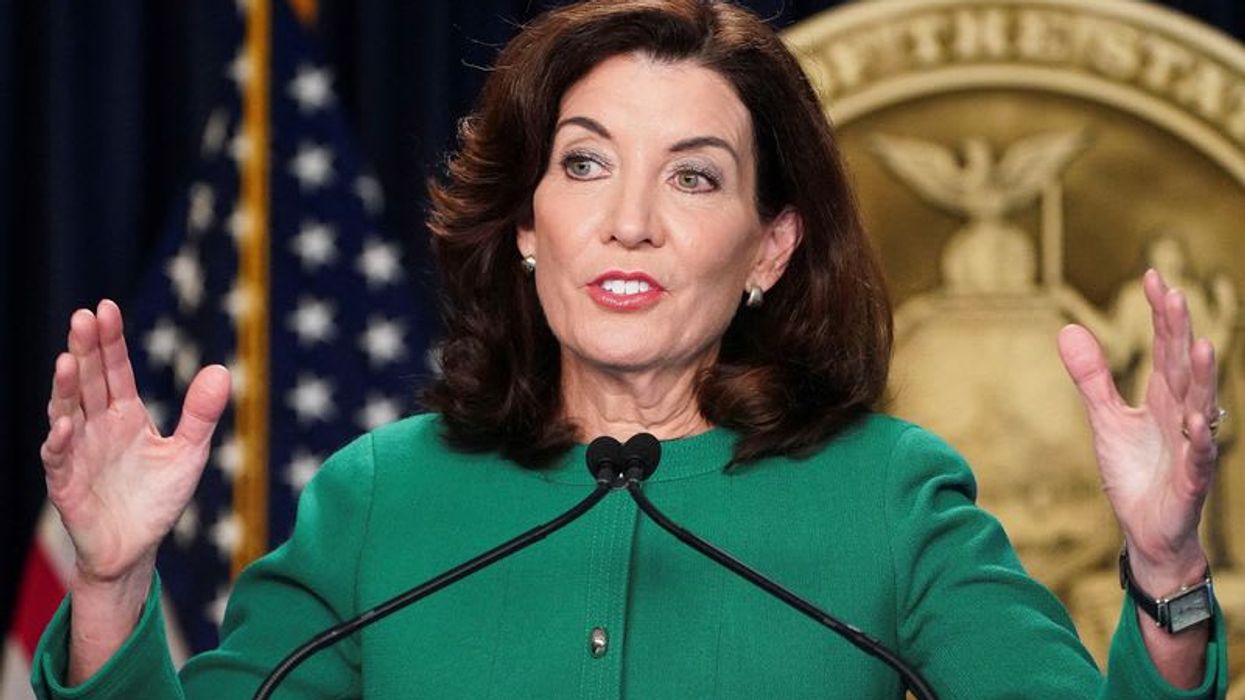Blue States Stepping Up Defense Against Republican Abortion Bans
It's tough to remain optimistic about abortion access right now, particularly in the face of such extremes from anti-abortion politicians and activists.
Take, for example, the Idaho Republican Party's refusal to include language in its platform that would allow abortion to save a pregnant person's life. Or the fact that Republicans are floating the idea that if they take the House back in November, they'll pass a federal abortion ban. Or the discussion over whether pregnant women should be allowed to travel to another state to obtain an abortion.
However, some states are moving to increase abortion access for patients and provide protection against prosecution if people are charged with what the texts of anti-abortion laws call "aiding and abetting," or with obtaining an abortion.
New York was one of the first states to take action, passing six bills designed to protect access once it became clear with the leak of the Supreme Court opinion in Dobbs v. Jackson Women's Health Organization that Roe would be overturned.
The state also issued millions of dollars in grants, including $25 million earmarked for an abortion provider support fund that will help increase provider capacity, allowing those providers to serve more patients. In announcing the $25 million grant, New York Democratic Gov. Kathy Hochul said that anecdotal evidence already pointed to an uptick in the number of patients from both Ohio and Pennsylvania coming to New York. More can be expected as bans in other states go into effect, she said; Ohio now has a six-week ban on the books.
Minnesota is also taking steps to protect abortion access. The state's Democratic governor, Tim Walz, signed an executive order requiring state agencies to protect people who provide or obtain abortions. Further, the executive order states that Minnesota will not assist other states that try to impose criminal or civil liability on someone seeking an abortion in Minnesota.
Earlier this month, a state district court judge overturned several of Minnesota's existing abortion restrictions, including a 24-hour waiting period and an "informed consent" requirement. The ruling also means that medication abortions can be offered by a variety of health care providers rather than just by doctors.
Advocates in Minneapolis are pushing the city to budget $800,000 to help fund groups that provide abortion funding and related support. It's vital for Minnesota to increase capacity because it is surrounded by states in which legislators are taking steps to ban or severely limit abortion.
Wisconsin has an 1849 abortion ban still on the books, and anti-abortion politicians argue that it is now in effect in the state. The state's attorney general has gone to court to argue that a 1985 law supersedes the earlier law.
Abortion is now fully banned in South Dakota, with no exceptions for rape or incest.
Late last year, California announced it would be a so-called sanctuary state for those in other states seeking abortions. This is especially necessary given that California is surrounded by states with legislatures controlled by anti-abortion politicians such as Arizona, where Republican Attorney General Mark Brnovich is pushing to have a Civil War-era abortion ban go into effect.
Clinics in California are hiring additional personnel and expanding hours to make abortion more available. Providers are also coordinating with abortion funds to help provide for ancillary costs, like travel and lodging. Hospitals are working to serve people with high-risk pregnancies who are forced to leave their states to receive care. A UCLA study predicts the state will see an additional 10,600 out-of-state patients seeking abortion care yearly.
Bans and severe restrictions are moving quickly toward enactment in Republican-controlled states. Eight states now have complete bans — Wyoming, South Dakota, Wisconsin, South Dakota, Missouri, Arkansas, Mississippi, and Alabama — and a New York Times tracker lists Tennessee and Idaho as states in which bans are expected soon.
As these restrictions move across the landscape, it will be ever more necessary for states that uphold abortion rights to continue to provide access for those in need.




